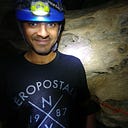Fasting: The Whole Truth
No nonsense; just facts.
Growing up I had always heard about fasting in society. Being raised in a semi-devout Hindu family, my parents used to fast every so often. Being born and raised a Brahmin, I couldn’t eat salt for a week during my thread ceremony. Other references of fasting in culture is the Muslim fasting period of Ramadan (or as we call it in India — Ramzan).
It wasn’t until 2012 that I came across fasting in my personal life. It was one of my good friends who started talking to me about it. He had been doing it for some time with great fat loss results. I, at the time was still fascinated by six pack abs and wanted to get one for myself (let’s be honest here).
One of the first and still prominent resources that I referenced was Leangains. Martin Berkhan’s no nonsense, peer reviewed research backed advice sounded too good to be true, but I couldn’t resist giving it a shot. At that time, I was eating a big breakfast every day. However, like Berkhan mentions in his eye opening blog post (which I cannot recommend enough); before I knew it I was hungry again. I was breaking my fast at 6:30 in the morning, rushing to class and by the time I returned at 10, my stomach was crying for more food. Mr. Berkhan’s system promised to put an end to these agonizing hunger pangs and that was the start of the lifestyle change I adopted.
The first week was hard. I ran to class with no food in my belly and only water to help me while my stomach growled for food (or so I thought). I noticed that I was more focused in class. Usually I’d be nodding off in class after a heavy breakfast. This wasn’t bad, I thought. After about a week or two, my body started getting used to it.
The Leangains system is a 16–8 fast, eat system. So you fast for 16 hours and eat within a window of 8 hours. You can adjust the window however you like but skipping breakfast worked for me. Mr. Berkhan also mentions how when you wake up cortisol is at the peak. If you eat during this time, body releases insulin. These two hormones don’t play well together as he explains here.
Wait, are you saying I could get leaner and get more sleep in the morning and spend less time cooking and have better insulin sensitivity and reduce diabetes risk at the same time? What was that? You forgot to say it also helps with autophagy, protein synthesis and prevent cancer? Man I am in! This sounds like no less than the elixir of immortality!
There is increasing evidence that fasting is good for us. That spells doom for all the food companies which is why there is conflicting evidence (or so they say). If all the people in the world or even a country started intermittent fasting, food companies would have to rethink their balance sheets.
As this documentary points out, there is a clinic in Germany which offers fasting treatment for cancer and other terminal disease patients. They are severely overbooked by people from all over the world.
One of the unspoken benefits that I have noticed, is that I can now go without food for extended periods of time and it is not painful. I am not constantly looking at the clock to eat food. The maximum time I have gone without food for, was 20 hours. I aim to do my first 24 hour water only fast soon.
If I have to summarize, I’d say that the most meaningful lifestyle change that I have ever undertaken was to do intermittent fasting.
